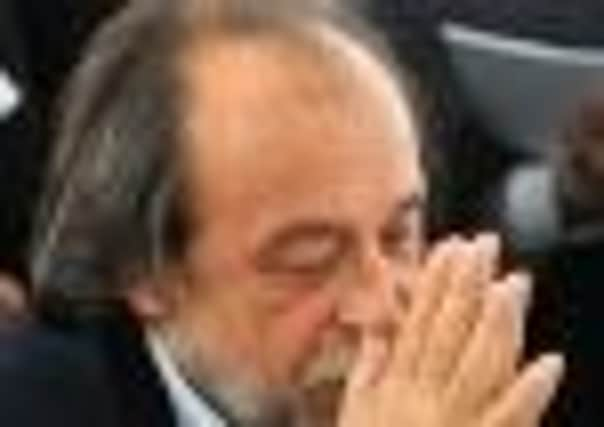Experts on trial for failing to warn of quake that killed 300


The seven are accused of manslaughter for giving “inexact, incomplete and contradictory information” about whether tremors felt by the residents of the historic town of L’Aquila, in the Abruzzo area of central Italy, were the precursor of a major quake, which hit on 6 April.
The case is being closely watched by the seismology community around the world, who insist it is impossible to predict earthquakes and dangerous to suggest otherwise since experts would be discouraged from issuing any guidance or advice fearing they might later face prosecution.
Advertisement
Hide AdAdvertisement
Hide AdProsecutors focused on a memo issued after a 31 March, 2009, meeting of the Italian government’s Great Risks commission which was called because of mounting concerns about the months of seismic activity in L’Aquila region.
According to the commission’s memo – issued one week before the big quake – the experts concluded that it was “improbable” that there would be a major quake though it added that one couldn’t be excluded. Commission members also gave largely reassuring interviews to local media after the meeting which “persuaded the victims to stay at home,” the indictment said.
The defendants’ lawyers have insisted on their clients’ innocence and stressed the impossibility of predicting quakes.
The 6.3-magnitude quake killed 308 people in and around the medieval town of L’Aquila, which was largely reduced to rubble. Thousands of survivors lived in tent camps or temporary housing for months.
Yesterday’s hearing was largely taken up with procedural details to inscribe the dozens of plaintiffs in the civil portion of the case, which will be heard alongside the criminal case.
The plaintiffs are seeking some €50 million (£44m) in damages. “We are looking for justice, that’s all,” prosecutor Alfredo Rossini told reporters before the hearing,.
The only one of the seven defendants in the chamber was Bernardo De Bernardinis, then-vice chief of the technical department of Italy’s civil protection agency.
“I felt that it was important to be here because this is my home, and also to underline the professionalism and competence of other public officials. I’m from Abruzzo, I owe it to the people of the city,” he said.
Advertisement
Hide AdAdvertisement
Hide AdThe other defendants include senior academics such as Enzo Boschi, the former director of Italy’s National Institute of Geophysics and Vulcanology, as well as Claudio Eva, a physics professor at Genoa University in northern Italy.
In addition to the memo issued after the Great Risks commission, prosecutors have focused on interviews Mr De Bernardinis and other members of the commission gave stressing the impossibility of predicting quakes and that even six months’ worth of low-magnitude tremors was not unusual in the highly seismic region.
In one now-infamous interview included in the prosecutors’ case, Mr De Bernardinis responded to a question about whether residents should just sit back and relax with a glass of wine.
“Absolutely, absolutely a Montepulciano doc,” he responded, referring to a quality red. “This seems important.”
The indictments have alarmed the international earthquake community, which responded to a call for support by Italy’s geophysics institute with 5,200 signatories of professors, seismologists and researchers from New Zealand to Costa Rica, Japan to Martinique.
The case continues.